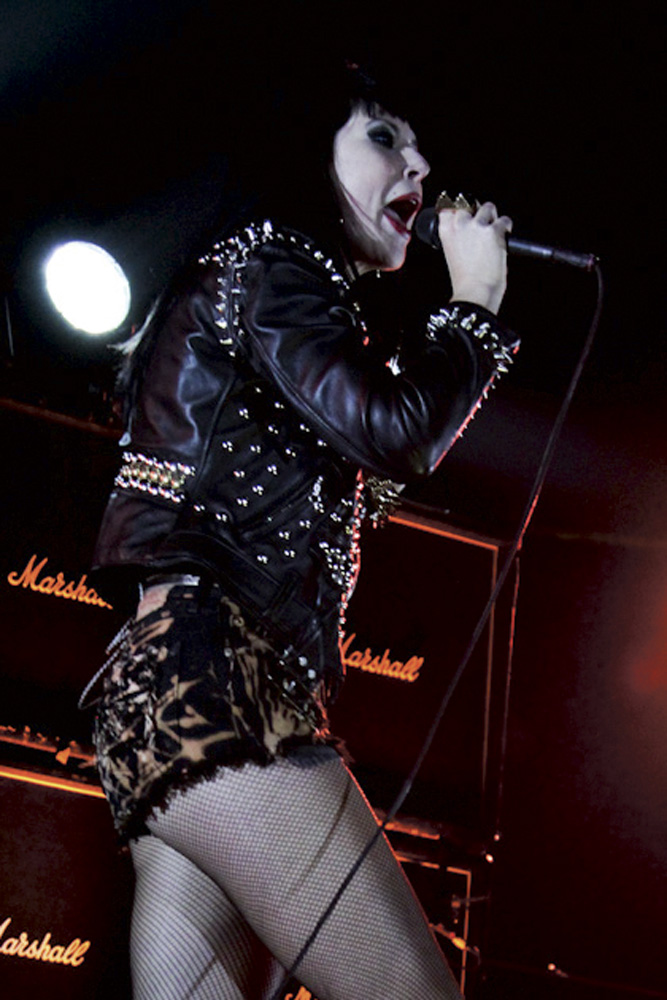
Amy Chase
Staff Writer
Brooklyn-based noise pop band Sleigh Bells recently had a track of theirs (“Demons”) featured in the season finale of Netflix’s “Jessica Jones” as the anthem for bold, rebellious women who like to kick ass.
From “Jessica Jones” to their newest album “Jessica Rabbit,” Sleigh Bells embraces an uncontrollable and chaotic spirit, channeling it through 14 tracks which, at their best, sound like the energetic result of an inspired musical collision, and at their worst sound like strange studio experimentation that somehow made the final cut.
That’s not to say that “Jessica Rabbit” is bad, but with previous albums like “Reign of Terror” and “Bitter Rivals” sounding much more cohesive as a completed work, it might just be that their eclecticism leaves this newest title feeling a little disoriented.
Since they began in 2008, Sleigh Bells have released four albums, with “Jessica Rabbit” being the first under the duo’s own music label Torn Clean (which shares its name with one of their new tracks).
The novelty in their music results from singer Alexis Kraus channeling a sort of 80’s hair-metal vibe to her otherwise pop-suited voice. Guitarist Derek Edward Miller provides a variety of instrumental styles such as acoustic and hard electric, but also uses more experimental sounds like speaker fry and electronic beats to form the accompaniment to her lyrics. The duo sound best when their unusual sounds coordinate and become catchy songs rather than confusing technique.
“Jessica Rabbit” opens with “It’s Just Us Now,” blasting a more standard hard-electric rock tune from the guitar with a stomping backbeat. The chorus doesn’t fit into the tempo of the rest of the song, but it can be excused in this opener because the overall effect does remind me more of some classic ‘80s rock, like Joan Jett and “Heartbreaker” by Pat Benatar. It manages a good mixture of electronic beats and is a more visceral rock sound, providing a hint at both what works and what fails to hit in the rest of the album.
The following track “Torn Clean” sounds more like a one-minute experiment on a sampler, playing a melodic echo of Krauss chanting without so much actual music. The echoes build on themselves, resulting in a dissonant backing track with minimal singing overlay. It is the shortest song of the 14. I struggled to actually understand what purpose that song serves to the album as a whole other than sharing a name with Krauss and Miller’s new record label.
Despite that confusing swerve, “Jessica Rabbit” follows with a solid block of songs including “Lightning Turns Sawdust Gold” and “Crucible,” which opens with a cacophony of screams, handclaps, and some guitar riffs that come together beneath the strong singing; these elements save this song from being a strange mess.
“I Can Only Stare” trades the guitar and drum machine for deep bass and keyboards, and feels like a successful entry as a darker pop piece. “Jessica Rabbit” makes a few more of these jarring transitions, such as in “Rule Number One,” while Krauss monotonously chants, “Instinct takes over, instinct commands us” over more sparse guitar sounds before she takes to shouting the next verse.
If these experimental musical transitions and effects were tightened up, “Jessica Rabbit” could stand tall as one of Sleigh Bells’ best. Regardless, it is a very enjoyable release and continues to build on their novelty style. There are a few songs I would skip to get to the real meat where Krauss and Miller threw something at the soundproof wall and got it to stick, like “Baptism by Fire” or “I Can’t Stand You Anymore.”
Overall, “Jessica Rabbit” deserves a listen and indicates a bold new step for Sleigh Bells, even if it wasn’t as strong a step as it could have been. If they can evolve their newer sounds into a more controlled chaos, they very well could set a new precedent for indie musicians to come.










